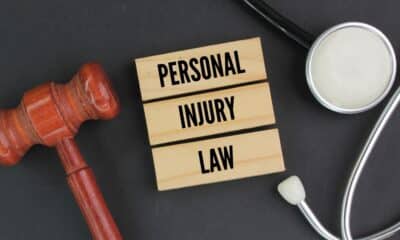All You Need To Know About Migraine & Its Symptoms
What are some of the things that trigger your migraines? Do you get an attack when you are outside in the bright sun? After you eat a chocolate bar? Did you know that some of these “triggers” of migraines may actually be symptoms?
In this article, we will explore this distinction in detail. But first, here is a quick tip. If you get regular attacks of head pain, consider taking a highly-rated supplement like MY BRAIN Migraine Relief & Headache Vitamins by Eu Natural. This supplement fights pain and other symptoms with ingredients like chaste tree berry, butterbur, ginger, feverfew, magnesium, and boswellia.
Learning To Recognize The Warning Signs
Knowing the difference between a trigger and a symptom is important. It is true that avoiding migraine triggers could help you steer clear of attacks in some cases. But if you already have an attack ramping up, it is important to treat it early. Plus, for chronic migraine sufferers, frequent attacks may be unavoidable, even while avoiding external triggers.
Neurologist Christopher Gottschalk explains, “Most of the things that people have thought of as triggers—stress, weather fronts, diet—when we have studied them, we’ve come up empty-handed every time. It’s not that they cause headaches, but that when you’re getting a headache, weather changes and perfumes feel worse.”
The article adds, “The Headache and Facial Pain Center also helps patients to understand that what they once thought of as “triggers” are actually warning signs of impending headaches. In so doing, they can treat pain before it starts, preventing headaches from becoming debilitating.”
Examples Of Migraine Triggers Which May Be Symptoms
Let’s go over a few common migraine triggers, which may actually be symptoms. Note that in some sufferers, each of these may still act as genuine triggers. It is possible for something to be a trigger and a symptom.
Bright Light
Researchers are still trying to understand why sensitivity to bright light occurs as a migraine symptom, and why bright light can worsen an attack.
As explained here, “[Rodrigo Noseda, assistant professor of anesthesia at Harvard Medical School] speculates that when blood vessels around the brain dilate, they can initiate positive feedback loops between trigeminal nerves and vessels. As a result, increased release of the peptide CGRP from pain-sensing nerves can further dilate vessels and activate immune cells. Since immune cells regulate the body’s inflammatory response, these series of events trigger migraine pain and photophobia. A study in mice demonstrated that CGRP opens blood vessels, and elevated levels of the protein in circulation drove the mice to scurry into the dark portion of their enclosures, reminiscent of photophobic behavior in humans.”
In other words, CGRP is already causing the cascade of events indicative of a migraine when the light sensitivity occurs. Thus, we can consider it a symptom of an existing migraine rather than just a trigger.
That means if you abruptly notice it is getting painful to keep your eyes open on a bright day, a migraine may be in progress, and an attack might be on the way.

Chocolate
Do you get a migraine when you eat chocolate? If so, you might be best to avoid chocolate as a migraine trigger. But this is another one that might actually be a symptom.
How can chocolate—or rather, eating chocolate—be a migraine symptom?
This research explains, “A small proportion of migraine patients report chocolate as a trigger factor. However, it may be difficult to distinguish between migraine triggers and premonitory symptoms, as eating chocolate before attacks may be a result of food cravings. All provocative studies have failed to confirm that chocolate can trigger migraine attacks. Many possible mechanisms through which chocolate can influence migraines exist, and more are beneficial than unfavourable.”
So, judging by that, you might actually want to reach for a chocolate bar the next time you feel a migraine coming on. It may be more likely to help than hurt. But you will need to pay attention to your body to figure out whether this is the case for you or not.
Also, the next time you have an urge to eat chocolate, you might want to consider whether you could be getting a migraine. It could be time to take evasive action, especially if you are also noticing other symptoms, like bright light becoming painful.

Neck Pain
Many people believe that neck pain can trigger migraines. Indeed, that is a reasonable and valid supposition, considering that tension or pain in the neck can easily refer to the head.
But did you know that pain in the neck could also be a symptom of a migraine in progress?
As reported here, “New study findings suggest that neck pain associated with migraine cannot be attributed to increased trapezius activity during rest, mental stress, and physical activity or prolonged muscle activity and should be seen as an accompanying symptom of migraine.”
The study exclusively considered the trapezius muscle, and did not look at other muscles in the neck, shoulders or back, but its results could lead to a paradigm shift in our beliefs about neck pain and migraines.
So, if your trapezius is tightening up with no obvious cause, it might be a sign that you have a migraine.
And the next time you do have a migraine and a tight neck, you know that it could be the migraine to blame. That sure can be eye-opening if you are someone with good posture and habits who still keeps getting neck and head pain!

Treat Migraines Early If You Detect Symptoms
Now you are familiar with some migraine triggers which may actually be symptoms of attacks which already are taking place. Start paying closer attention to some of your migraine triggers and symptoms, and see if some of the factors you assume are triggers could actually be symptoms, indicating that it is time to take action.
A swift response with acute migraine treatments may be more effective than waiting until it becomes more obvious that you’re having an attack. And if you have chronic head pain, don’t forget about taking supplements and other preventative measures to manage your symptoms.













